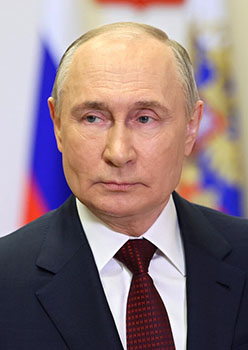From Our Archives
Debie Thomas, Unless You Eat (2021); Debie Thomas, The Beginning of Wisdom (2018); Debie Thomas, A King's Tale (2015),
This Week's Essay
Psalm 146: "Do not trust in princes, in mere mortals, who cannot save."
For Sunday August 18, 2024
Lectionary Readings (Revised Common Lectionary, Year B)
Psalm 111 or Psalm 34:9–14
Ephesians 5:15–20
John 6:51–58
I'm always amazed at how the ancient Scriptures can sound so modern. If you updated the names in 1 Kings 2 for this week, it could be a headline from today's newspaper: "Then David rested with his fathers and was buried in the City of David… So Solomon sat on the throne of his father David, and his rule was firmly established." This is a story about a political transition in Israel's history.
There have been ten national elections around the world in 2024 alone. Six of them have included chaos and violence — Bangladesh, Great Britain, Venezuela, Russia, Pakistan, and the United States.
Indonesia held elections in February. From April 19 to June 1, over 642 million (!) voters in the largest democracy in the world elected new leaders in India. On June 2, deeply Catholic Mexico elected the Jewish Claudia Sheinbaum as its first woman president. The week of July 4, France elected all 577 members of its legislature.
Here in the United States, President Biden protested on national television that political violence was "unheard of" in our country. In fact, four American presidents have been assassinated. There have been attempted assassinations on sixteen others. That's 20 of our 45 presidents. Assassins have also targeted Robert Kennedy, George Wallace, Malcolm X, MLK, San Francisco Mayor George Moscone, Supervisor Harvey Milk, Gabby Giffords, Steve Scalise, and Kamala Harris. A Wiki article lists 58 "assassinated American politicians." Nor should we forget the many other forms of political violence like the Indian Removal Act or the history of lynchings. The United States is not immune from the violent forces of history that have convulsed other countries, especially during times of political transitions.
 |
|
Claudia Sheinbaum.
|
I find it easy to be discouraged or dismissive about politics. The safety of silence and withdrawal sounds tempting. I recently told my wife that all the violence and vulgarity of our American presidential election made me want to flee to the solitude of a monastery. She responded, "What good would that do? How would that help?" Good point.
In fact, the Bible is full of politics from cover to cover. To sit on the sidelines is a recipe for irrelevance. Furthermore, politics are not only important, they are necessary, for we all share a common life as fellow citizens in the polis. We must learn to live together. Nonetheless, when we engage in politics, we also risk conformity to the world and collusion with the powers.
So, there's an inherent ambiguity and even a tragic conflict between God and Caesar. Even though large parts of scripture are purely political, they aren't merely political. Embedded in these stories is a theological critique of politics. The Bible thus exposes our political illusions, both ancient and modern.
On the one hand, significant parts of the Bible are purely political, like the six books of 1–2 Samuel, 1–2 Kings for this week, and 1–2 Chronicles. This narrative runs for 250 pages and covers 400 years, from Israel's first king Saul until its exile to Babylon.
We read about Israel's role in the geopolitics of Assyria, Edom, Egypt, Moab and Tyre. There are wars, alliances made by marriage, famines, conspiracies, assassinations, trade agreements, taxes, and foreign policy negotiations. We read about Solomon's massive building projects — the temple at Jerusalem and his royal palace, both of which were built by slave labor conscripted from resident aliens. There is also his incomparable wealth, notwithstanding the reading this week.
On the other hand, these narratives don't simply endorse Israel's political history. They also include a trenchant critique. Yes, we read about Solomon's wisdom, and his earnest prayer when he dedicated the temple. But his story ends with personal corruption to pagan gods and goddesses (Ashtoreth, Molech, Chemosh), whose practices included child sacrifice, exorbitant taxes, and a royal harem of 1,000 concubines. His son Rehoboam even bragged about how oppressive his subsequent government would be: “My father made your yoke heavy, but I will make it still heavier; my father chastised you with whips, but I will chastise you with scorpions.” Rehoboam provoked a civil war that ripped the country apart, and that ended with defeat by the global powers Assyria (722 BC) and Babylon (586 BC).
 |
|
Vladimir Putin.
|
If Solomon's personal story regarding political power is tragic, Israel's national story is even more so. The tragedy begins with the origins of Israel's centralized political power in 1 Samuel 8. The people wanted a king “like the other nations.” Samuel objected, went to God in prayer, and was rebuffed by the people’s insistence. In longing for a king, Israel was not rejecting Samuel but God himself. Samuel granted their request, but warned them of the harsh consequences — the government would conscript their children for wars, make them domestic slaves, confiscate their land, and impose exorbitant taxes. Israel’s first king, Saul, did all this and more.
The political panorama of 1–2 Kings includes the reigns of forty kings and one queen (Athaliah) in the 400 years from the death of David to Israel's exile to Babylon. Only two kings received unqualified approval by the narrator (Hezekiah and Josiah). With rhetorical regularity, over thirty times the narrator renders the ominous judgment that a king "did evil in the eyes of the Lord." Instead of glorifying political power, this 400-year history of politics is unremittingly negative — in keeping with the dire warning in 1 Samuel 8.
So, this 250-page narrative that covers 400 years conveys a radical relativization, subversion, and even judgment of Israel's politics. For the true remnant of the true God, just as there is no safety in silence, there is no collusion with or conformity to political power, but instead a moral critique. That's remarkable when you consider that these are Israel's sacred writings, and that such negative conclusions about royal power must have put the author at some risk.
And so the psalmist warns us: "Do not put your trust in princes, in mere mortals, who cannot save. When their spirit departs, they return to the ground; on that very day their plans come to nothing." (146:3–4). As for the pretensions of the "kings and rulers of the earth," God who "sits in the heavens laughs, the Lord scoffs at them." These kings, rulers, and judges, says the psalmist, should "show discernment and take warning."
In his book In God's Shadow: Politics in the Hebrew Bible (2012), Michael Walzer of Princeton's Institute for Advanced Study suggests a provocative thesis about the Old Testament — even though the Hebrew Bible contains a lot about politics, it isn't really interested in politics. Rather, it commends what Walzer calls a radical anti-politics.
Since God alone is sovereign, caesar is always and only secondary. The prophets, for example, are poets of social justice and Israel's most important form of public speech, but they're not political activists with any program. With their emphasis on divine intention as opposed to human wisdom, the prophets exemplify the Hebrew Bible's "radical denial of the doctrine of self-help." The prophets, says Walzer, "disdain" politics. In contrast to Greek philosophers, "the Biblical writers never attach great value to politics as a way of life." Politics is simply "not recognized by the Biblical writers as a centrally important or humanly fulfilling activity."
In place of radically relativized politics, says Walzer, the Hebrew Bible commends an ethic or way of life, like Micah 6:8, or Isaiah 58. Do justice, love kindness, walk humbly with your God. Protect the weak, feed the poor, care for the widow, free the slaves, and welcome the alien.
And what about the New Testament? Consider three moments in the birth, ministry, and death of Jesus.
Mary's birth announcement includes an ominous prophecy directed at the political powers: "He has brought down rulers from their thrones, but has lifted up the humble" (Luke 1:52). It's no wonder that governments have banned Mary's Magnificat as politically subversive — in India in 1805 by the British rulers, in the mid-1970's in Argentina after the "Mothers of the Disappeared" put the poem on posters in their non-violent marches against the ruling government, and in El Salvador in the 1980's — where archbishop Oscar Romero was assassinated on March 24, 1980, for his criticisms of the military regime.
And when Jesus was dragged to the Roman governor's palace, he faced three political charges: "We found this fellow subverting the nation, opposing payment of taxes to Caesar, and saying that he himself is Christ, a King." (Luke 23:2). We sometimes think of Jesus as an innocent victim, but in some ways he was very much guilty as charged.
Third, the very first public words that Jesus spoke announced that "the kingdom of God is at hand." He invites us to "seek first" this kingdom. His alternative reign-and-rule would be "not of this world." We should never confuse the relative claim to "render to Caesar what is Caesar's" with the absolute and unconditional claim to "render to God what is God's." (Matthew 22:21).
 |
|
Narendra Modi.
|
So, for the New Testament, the historian Garry Wills uses the same language as Walzer does about the Old Testament. In his book What Jesus Meant (2006), Wills observes that Jesus never allowed himself to be co-opted by any political party of his day. He didn't engage in any overt political action. From his birth when King Herod tried to murder him until his death at the hands of Pilate, Jesus threatened the political powers, not because he sought to control what they controlled, but because "he undercut its pretensions and claims to supremacy." If Jesus is Lord, then caesar is not Lord. Jesus didn't acquiesce in silence before political power, and he certainly didn't conform to its conventions. Rather, he confronted it, says Wills, so that "the program of Jesus's reign can be seen as a systematic antipolitics."
Walzer and Wills don't suggest that we should assume a merely spiritual posture that is relegated to a future age beyond history or in heaven. The creative alternative of the kingdom of God that Jesus announced and embodied is what life would be like on earth, here and now, if God were king and the rulers of this world were not (Borg, Crossan).
The political, economic, and social subversions would be almost endless — peace making instead of war mongering, liberation not exploitation, sacrifice rather than subjugation, mercy and not vengeance, care for the vulnerable instead of privileges for the powerful, generosity instead of greed, humility rather than hubris, and inclusion rather than exclusion.
In his poem "Credo," the Jesuit priest Daniel Berrigan thus repudiates the idea of salvation through politics.
I can only tell you what I believe; I believe:
I cannot be saved by foreign policies.
I cannot be saved by the sexual revolution.
I cannot be saved by the gross national product.
I cannot be saved by nuclear deterrents.
I cannot be saved by aldermen, priests, artists,
plumbers, city planners, social engineers,
nor by the Vatican,
nor by the World Buddhist Association,
nor by Hitler, nor by Joan of Arc,
nor by angels and archangels,
nor by powers and dominions,
I can be saved only by Jesus Christ.
Likewise, I cannot be saved by Donald Trump, by Kamala Harris, a better Supreme Court, or by the military might of the Pentagon. To think this way isn't defeatist, it's realistic, and deeply Biblical. And in an age when politics defines everything, it's also heretical. And so there's an inevitable and tragic conflict between faith and politics, in which we reject the safety of silence, the pressures of partisanship, the illusions of the experts, and conformity to the status quo.
In his book called The Kings and Their Gods; The Pathology of Power (2008), Berrigan suggests that the story of King Solomon, and the greater 400-year narrative of Israel's political history, function as mirrors in which we see our own reflection today. "Do our leaders differ, in any large degree, from the rulers of old? They are hardly different at all."
And so, on the last page of that book, he challenges us: "One must urge (to his own soul first) a firm rebutting midrash; bring Christ to bear. Read the gospel closely, obediently. Welcome no enticements, no other claim on conscience. Mourn the preachers and priests whose silence and collusion signal plain revolt against the gospel. Enter the maelstrom, the wilderness; flee the claim that would possess your soul. Earn the blessing; pay up. Blessed — and lonely and powerless and intent on the Master — and, if must be, despised, scorned, locked up — blessed are the makers of peace."
NOTE: Wiki, "List of United States Presidential Assassination Attempts and Plots."
Weekly Prayer
"To Saint Peter Claver"
Daniel BerriganHeal us Jesuits; the overly content, the malcontent,
the skilled and sere of heart, the secret weepers,
the self-defeated, the defaulters, the proud of place
drinking the empty wind of honor. Help the workhorses
slow; speed the laggards, give back to routine and rote
their lost soul.
Institution, constitution, order, law—O
kiss the dead awake!
Your Holy Spirit, come!From Daniel Berrigan, And the Risen Bread; Selected Poems, 1957–1997 (1998). From Wikipedia: "Saint Peter Claver (1581–1654), S.J., was a Spanish Jesuit priest and missionary born in Verdú who, due to his life and work, became the patron saint of slaves, the Republic of Colombia and ministry to African Americans."
Dan Clendenin: dan@journeywithjesus.net
Image credits: (1) Wikipedia.org; (2) Wikipedia.org; and (3) Wikimedia.org.





